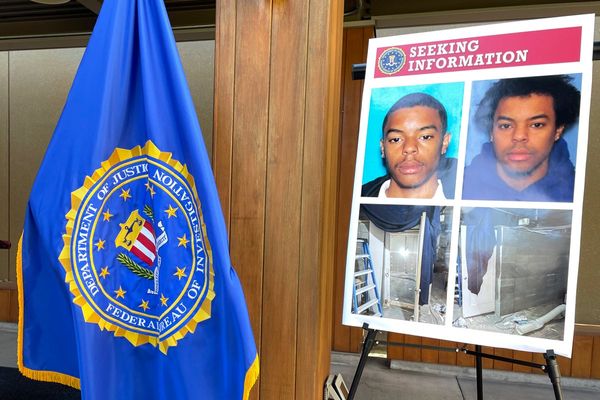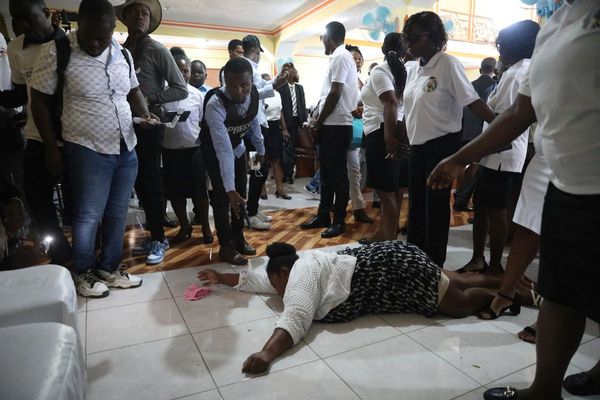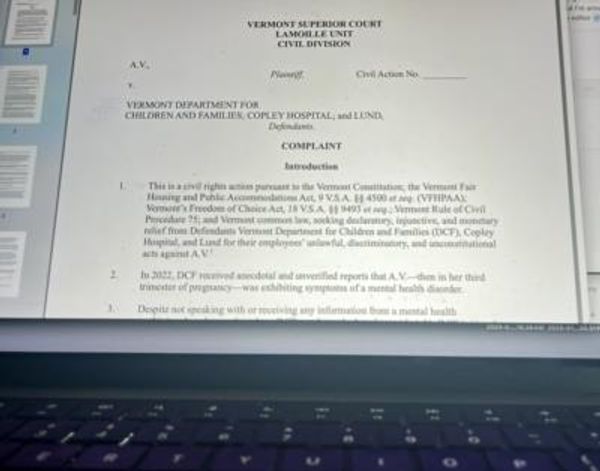
In September 2019, the life of gift shop clerk and Honiara resident Patricia was thrown into chaos. Her daughter, Georgia, lost a prestigious scholarship at one of Taiwan’s universities — one of 106 scholarships the Taiwanese had distributed to Solomon Islanders as part of its aid program.
Georgia was studying international relations and politics and was set to take on the world. Instead her hopes were dashed when Taipei terminated her scholarship as Solomon Islands opened ties with China.
When I first met Patricia, a few weeks after that decision, she was bereft: “I haven’t slept since the ‘switch’ [to China].”
But instead of giving up, she took matters into her own hands. She rented a small patch of land outside Honiara and planted a large watermelon crop. Soon she was moonlighting as a farmer, in addition to her museum job, simply to afford to pay for her child’s future.
When the Solomon Islands government voted to sever its longstanding ties with Taiwan and take up diplomatic relations with Beijing in 2019, it was a major news story, inspiring countless column inches. It also impacted the lives of real people like Patricia and Georgia.
When Prime Minister Manasseh Sogavare’s government embraced China, many from afar amplified the idea that the Solomon Islands was simply too weak to deal with China. A prevailing, diminutive view emerged arguing that, given its weakness, the Solomons would be a pushover to Beijing’s expansionist instincts. But the reality has proven more nuanced. A long history of resistance to foreign coercion is being demonstrated, and regular people like Patricia are ensuring their lives aren’t being defined by the switch.
No doubt, the Solomon Islands is burdened by its circumstances. It remains among the world’s least developed nations. Its governance has been poor; graft and cronyism are common. Its internal divisions are real and provide fertile ground for agitators, as seen in the November 2021 riots.
Given this context, a burgeoning economic, political and security relationship with China understandably concerns Australia, which has viewed the Solomons as perhaps its largest security risk in a region once described as an “arc of instability”.
But while we can express concern about Solomon Islands’ vulnerabilities, we must remember that, since the nation’s first interactions with the outside world, its people have provided a check on foreign usurpation.
When gold-hungry Spaniards first eyed the archipelago in 1568, they were met with volleys of arrows. Some chiefs even cleverly leveraged the Spaniards’ presence to gain an advantage over neighbouring rivals, with whom they were at war.
One of the first Spanish words the locals learned was afuera, which loosely translated in that context to “outside” or “go away” — a refrain that soon ricocheted across the archipelago as the Spaniards vainly tried to establish a foothold. It would be two centuries before Europeans came back. The British had more success in controlling the Solomons, but also faced pushback that accelerated after World War II, paving the way for independence.
Since independence in 1978, Solomon Islander leaders have coveted their sovereignty, and its people have rarely been passive in the face of international interference. After the switch, prognostication about the Solomons has omitted both this history and the on-the-ground reality.
Inside the country, China’s presence remains controversial and is routinely criticised. Beijing has showered the Solomon Islands government with largesse, even supporting Sogavare’s pet project, the Pacific Games.
But these pledges have divided opinion in the Solomons. Most people would prefer their hospitals have enough medicine rather than a new stadium being built. And Beijing’s efforts to shape Solomons’ public opinion about China itself have been ineffective, and occasionally comically amateur.
When anti-China movements emerged in the Solomons after the switch, the Chinese embassy’s public statements — one of which stated that the “feelings of the Chinese people were hurt” by the dissidents’ actions — were met with public ridicule.
An Australian Strategic Policy Institute (ASPI) report into China’s efforts to influence the Solomons worried some who were alarmed by China engaging in an influence effort at all. But it actually showed just how immaterial these efforts had been in shaping opinion. Though Chinese-linked entities have established Facebook groups spouting the virtues of China, very few locals were paying attention.
There are legitimate concerns about the nature of China’s growing relationship with the Solomon Islands government. But as our discourse about the Pacific becomes consumed solely by geopolitics, we’d be wise to draw lessons from the strength of everyday people in the Pacific who don’t want their lives to be defined by outsiders.
Ed Cavanough’s new book, Divided Isles: Solomon Islands and the China Switch, is out now through Black Inc.







